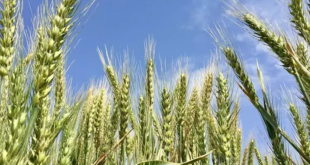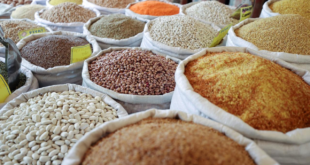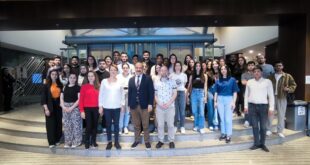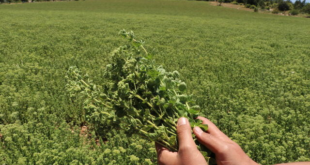“Leaving No One Behind: Greater Involvement and Empowerment of Rural Women in Türkiye and Central Asia”

The project is funded by the Government of Türkiye under the FAO-Türkiye Partnership Programme on Food and Agriculture (FTPP II). The overall objective is to provide policy support, capacity development and knowledge generation in order to accelerate gender equality and rural women’s economic empowerment, reduce rural poverty, and empower rural communities and organizations to access productive resources, services and markets.

What is the situation of women living in rural areas and how are they profiled?
Neşe Çakır Sayran (*): Most of the world’s extreme poor live in rural areas. According to TURKSTAT data, two-thirds of the most vulnerable and 90 percent of the extreme poor in Türkiye live in rural areas. Approximately 5.6 million people work in the agricultural sector, 45 percent of whom are women. In rural Türkiye, informal employment in the agricultural sector is higher for women than for men. In 2020, the proportion of women in informal employment outside the agricultural sector was 20.3 percent, while it was 19.5 percent for men. The rate of women working informally in the agricultural sector is 98.3 percent, which means that women are deprived of basic rights and social security.
What are the main challenges faced by women and girls in rural areas?
Neşe Çakır Sayran: When we look at the gender-based division of labour, there is a sharp distinction between women and men. Women mostly work as unpaid family workers in labour-intensive and invisible jobs. Women spend almost as much time on household chores as they do on agriculture. Due to the gender-based division of labour, tasks such as childcare, elderly care, patient care, cleaning, food supply and fuel are seen as women’s primary duties. This is the invisible labour of women and unfortunately, it does not appear in national statistics.
Gender inequalities are evident in agricultural labour markets, where women are more likely than men to be employed in low-paid, part-time, seasonal and informal employment. Gender-based discrimination, lack of access to information and networks, and systematic under-representation in rural institutions and organizations undermine women’s demands and decision-making power.

Do women get an equal share of income distribution?
Neşe Çakır Sayran: When we look at the distribution of income between women and men, we see that equal pay for equal work is not a given. Gender-based discrimination lies behind this. There are still differences between regions, but women generally work in labour-intensive and low-status jobs in agriculture while men benefit more from technology and mechanization.
How rural women’s empowerment can be realized? What role does FAO play in this?
Neşe Çakır Sayran: One of the mandates of the Food and Agriculture Organization of the United Nations (FAO) is to contribute to the eradication of poverty in food and agriculture “by promoting equal livelihoods, full and productive employment, decent work, entrepreneurship, equal access to resources and adequate social protection for all actors in the value chain, leaving no one behind”.
In Türkiye, FAO supports 22 women-led cooperatives and plans to increase the number it supports in the near future. Such platforms are very important for women’s solidarity. Here women share their common problems and find solutions. They become aware of their rights, earn income, join forces to access the market and have an opportunity to provide employment. Women’s empowerment is not only economically but also socially.

You also work in the field and provide training – what are your observations on the effects of training on women?
Neşe Çakır Sayran: When we looked at the stories of women in the field, we saw that training had a very positive impact on their lives. They become economically and socially empowered, they participate in social life, join the labour force and participate in the formal economy. Especially in financial matters, men are more dominant and sovereign; through cooperatives, women earn income, gain power, have access to resources and are very effective in making their voices heard.
However, without exception, when women embark on such a business they do not receive support from their families or social circle.
How do you think this can be overcome?
Neşe Çakır Sayran: For the first time in 2014, FAO and the Ministry of Agriculture and Forestry initiated projects on gender equality. I was the coordinator of these projects at that time. In this field, FAO has achieved great momentum in ensuring gender equality. In the gender equality training, we provide to FAO and Ministry personnel, as well as in sessions during events we organize on different platforms, we now see the emergence of a common terminology, a common awareness and perspective.
What more can be done for the empowerment of women in rural areas?
Neşe Çakır Sayran: As FAO, our closest national partner is the Ministry of Agriculture and Forestry; we work together in rural areas. It is important to have a joint gender equality action plan for women’s empowerment at the country level. It is also important to collect sex-disaggregated data to highlight the differences between women and men. However, women are not a homogenous group. There are differences between regions, differences within the same province, differences even within the same village. FAO needs to undertake research on the situation of women in rural areas, including the differences among women.

About the FAO-Türkiye Partnership Programmes
The objectives of the FAO-Türkiye Partnership Programmes are to provide support to ensure food security, rural poverty reduction and sustainable forest management; combat desertification; and preserve ecosystems in Azerbaijan, Kazakhstan, Kyrgyzstan, Tajikistan, Türkiye, Turkmenistan and Uzbekistan, and other countries of mutual interest.
Established in 2007, the first phase of the FAO-Türkiye Partnership Programme on Food and Agriculture (FTPP) has benefited from trust fund contributions totalling USD 10 million, financed by the Government of Türkiye and represented by the Ministry of Agriculture and Forestry. During the first phase of the programme, 28 projects were implemented in 16 countries between 2009 and 2015.
In 2014, Türkiye and FAO commenced the second phase of the FTPP along with the first phase of the FAO-Türkiye Forestry Partnership Programme (FTFP) with additional funding of USD 20 million, bringing Türkiye’s total contribution to USD 30 million.

(*) Neşe Çakır Sayran, Gender Specialist at FAO
 THE GLOBAL WINDOW OF TURKISH FOOD AND AGRICULTURE The Global Window of Turkish Food and Agriculture Sector
THE GLOBAL WINDOW OF TURKISH FOOD AND AGRICULTURE The Global Window of Turkish Food and Agriculture Sector









